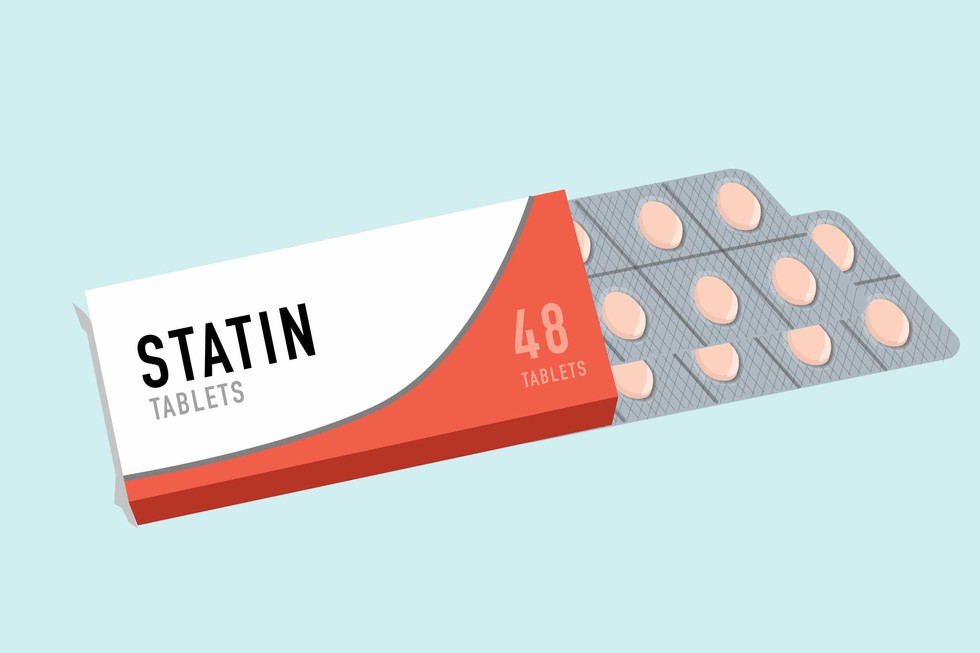
About Atal Tunnel:
- Atal Tunnel, formerly known as Rohtang Tunnel, is the world's longest high-altitude tunnel, situated at an elevation of approximately 3,100 meters (10,171 feet) above sea level.
- It is located in the Pir Panjal Range of the Himalayas, in Himachal Pradesh. It passes through Rohtang pass.
- It stretches 9.02 km, connecting Manali to Lahaul and Spiti Valley throughout the year, previously cut off for about six months each year due to heavy snowfall.
- The tunnel is a horseshoe-shaped, single tube, double lane tunnel. The tunnel features a semi-transverse ventilation system, emergency exits every 500 meters, evacuation lighting, broadcasting systems and fire hydrants for safety.
2. Key Facts about Red Sea

About Red Sea:
- It is a semi-enclosed inlet(or extension) of the Indian Ocean between the continents of Africa and Asia. It is one of the world’s warmest seas.
- It is connected to the Arabian Sea and the Indian Ocean to the south through the Gulf of Aden and the narrow strait of Bab El-Mandeb.
- The northern portion of the Red Sea is bifurcated by the Sinai Peninsula into the Gulf of Aqaba and the Gulf of Suez, where it is connected to the Mediterranean Sea via the famous Suez Canal.
- Bordering Countries:
- Yemen and Saudi Arabia border the Red Sea to the east.
- It is bordered by Egypt to the north and west and by Sudan, Eritrea, and Djibouti to the west.
- The Red Sea contains some of the world’s hottest and saltiest seawater.
- Islands: Some well-known islands include Tiran Island, which is located near the mouth of the Gulf of Aqaba and Shadwan Island, which is located at the entrance of the Gulf of Suez.
- With its connection to the Mediterranean Sea via the Suez Canal, it is one of the most heavily traveled waterways in the world, carrying maritime traffic between Europe and Asia.
3. What is an Asteroid?

About Asteroid:
- Asteroids, sometimes called minor planets, are rocky remnants left over from the early formation of our solar system about 4.6 billion years ago.
- Most of this ancient space rubble can be found orbiting the Sun between Mars and Jupiter within the main asteroid belt.
- Asteroids orbit the sun in highly flattened or "elliptical" circles, often rotating erratically, tumbling and falling through space.
- The total mass of all the asteroids combined is less than that of Earth's Moon. Many large asteroids have one or more small companion moons. An example of this is Didymos, a half-mile (780 meters) wide asteroid that is orbited by the moonlet Dimorphos, which measures just 525 feet (160 m) across.
4. What are Statins?

About Statins:
- Statins are prescription medications that people take to bring their cholesterol down to normal levels. It works by blocking the action of the liver enzyme that is responsible for producing cholesterol.
- Too much cholesterol in the blood can cause a buildup of plaque on the walls of the arteries. That buildup can eventually cause the arteries to narrow or harden. Sudden blood clots in these narrowed arteries can cause a heart attack or stroke.
- Some statins can decrease your LDL(low-density lipoprotein, or “bad”) cholesterol by 50% or more. Providers often call LDL “bad” because it builds up inside your arteries, making it harder for blood to move through them.
- These medicines also have been linked to a lower risk of heart disease and stroke. Statins may also help reduce the risk of certain blood clots.
- Statins can sometimes interact with other medicines, increasing the risk of serious side effects, such as muscle damage.
5. What is Central Administrative Tribunal (CAT)?

About Central Administrative Tribunal (CAT):
- It had been established under Article 323-Aof the Constitution.
- Mandate: To adjudicate disputes and complaints with respect to the recruitment and conditions of service of persons appointed to public services and posts in connection with the affairs of the Union or other authorities under the control of the Government.
- In addition to the Ministries and Departments of Central Government, the Government has notified about 214 organizations under the jurisdiction of the CAT from time to time.
- Composition: A bench consists of one Judicial Member and one Administrative Member. There are 17 Benches and 21 Circuit Benches in the CAT all over India.
- The conditions of service of the Chairman and Members of CAT are the same as applicable to a Judge of High Court.
- Salaries, Allowances and Conditions of Service of the officers and other employees of the Tribunal are specified by the Central Government.
- Powers:
- It exercises jurisdiction only in relation to the service matters of the parties covered by the Administrative Tribunals Act 1985.
- The Tribunal is guided by the principles of natural justice in deciding cases and is not bound by the procedure prescribed by the Civil Procedure Code.
- It is empowered to frame its own rules of procedure and practice.
- It has been conferred with the power to exercise the same jurisdiction and authority in respect of contempt of itself as a High Court.
6. Lalit Kala Akademi

About Lalit Kala Akademi:
- It was inaugurated on 5th August 1954 by the then Minister for Education, Maulana Abul Kalam Azad and was registered under the Societies Registration Act 1860.
- It has preserved and documented a permanent collection of the highest order that reflects the vitality, complexity and unfolding patterns of contemporary, modern, folk and tribal art in India. It is India's national academy of fine arts established by Government of India to promote and propagate understanding of Indian art, in and outside the country.
- It promotes Visual Art of India in various countries of the world through Cultural Agreements and Cultural Exchange Programmes.
- Funding: It is funded by the Ministry of culture.
- Headquarter: New Delhi. It has regional centres situated at Chennai, Lucknow, Kolkata, Bhubaneswar, Garhi.
7. Organic Electrochemical Transistor

About Organic Electrochemical Transistor:
- It is an emerging class of transistor based on organic superconducting materials known for their ability to modulate electrical current in response to small changes in the voltage applied to their gate electrode.
- It is a device capable of simultaneously controlling the flow of electronic and ionic currents.
- Advantages: They have various notable advantages, including promising amplification and sensing capabilities, low power consumption, low driving voltages and a versatile structure.
- Applications: They can be used to create biosensors, wearable devices and neuromorphic systems.
What is transistor?
- It is a semiconductor device for amplifying, controlling and generating electrical signals. It is the active components of integrated circuits or “microchips,” which often contain billions of these minuscule devices etched into their shiny surfaces.
- There are three terminals for transistor as mentioned below:
- Base: To activate the transistor
- Collector: It is a positive lead of transistor
- Emitter: It is a negative lead of transistor
- Types of Transistors:
- Bipolar Junction Transistor: It is considered one of the most common types of transistors and it can be either NPN or PNP. It can able to amplify the electrical signal by joining all three layers into one. In current flow, there are two types of electrical charges involved i.e., electrons and holes.
- Field effect transistor: It is a three-terminal semiconductor device. Its operation is based on a controlled input voltage. It uses an electric field to control the field of electric current in a semiconductor. They are also known as unipolar transistors since they contain single-carrier-type operations.
8. Clean Energy Transitions Programme

About Clean Energy Transitions Programme:
- It is the IEA’s flagship initiative launched in 2017 for accelerating progress toward a global net zero energy system.
- It leverages the insights and influence of the world’s leading energy authority to accelerate clean energy transitions, particularly in emerging and developing economies
- Its goals are in line with the objectives of the 2015 Paris Agreement and the Sustainable Development Goals established by the United Nations.
Key facts about IEA:
- It is an autonomous inter-governmental organisation within the OECD framework. It works with governments and industry to shape a secure and sustainable energy future for all.
- It was founded in 1974 to ensure the security of oil supplies. It was created in response to the 1973-1974 oil crisis.
- It consists of 31 member countries and eleven association countries. A candidate country to the IEA must be a member country of the Organisation for Economic Co-operation and Development (OECD).
9. Hume AI

About Hume AI:
- It is the world’s first emotionally intelligent voice AI. It accepts live audio input and returns both generated audio and transcripts augmented with measures of vocal expression.
- It is essentially an API that is powered by its proprietary empathic large language model (eLLM). This eLLM reportedly understands and emulates tones of voices and word emphasis to optimise human-AI conversations.
- It is trained on human reactions to optimize for positive expressions like happiness and satisfaction. EVI will continue to learn from users’ reactions.
- By processing the tune, rhythm and timbre of speech, EVI unlocks a variety of new capabilities, like knowing when to speak and generating more empathic language with the right tone of voice.
What is large language model?
- It is a type of artificial intelligence (AI) program that can recognize and generate text, among other tasks.
- They are trained on huge sets of data—hence the name "large". They are built on machine learning: specifically, a type of neural network called a transformer model.
- In simpler terms, an LLM is a computer program that has been fed enough examples to be able to recognize and interpret human language or other types of complex data.
10. Caracal

About Caracal:
- It is an elusive, primarily nocturnal animal which has traditionally been valued for its litheness and extraordinary ability to catch birds in flight. In India, it is called siya gosh, a Persian name that translates as ‘black Ear’.
- They typically use abandoned porcupine burrows and rock crevices for maternal dens, but can be found with their young in dense vegetation.
- Distribution:
- The most suitable habitat for caracals in Rajasthan, Gujarat and Madhya Pradesh is located in Kutch, the Malwa Plateau, the Aravalli hill range and the Bundelkhand region,
- It is found in several dozen countries across Africa, the Middle East, Central and South Asia.
- Habitat: They live in woodlands, savannahs and in scrub forests.
- Threats: Large-scale hunting, illegal trading and loss of natural habitats are considered significant threats to the species.
- Conservation status:
- The Wild Life (Protection) Act, 1972: Schedule I


























































































































































.png)
.png)
.png)
.png)
.png)


.png)
.png)
.png)





.png)
.png)






.png)
.png)
.png)
.png)
.png)
.png)
.png)
.png)
.png)

.png)







.png)
.png)


.png)
.png)
.png)


.png)

.png)
.png)





.jpg)

.png)
.png)


.png)

.png)
.png)
.png)

.jpg)

.jpg)


.png)

.png)
.png)
.png)
.png)
.png)
.png)
.png)
.png)
.png)
.png)




.png)

.png)





.png)
.png)
.png)
.png)
.png)
.png)
.png)
.png)
.png)
.png)
.jpg)
.jpg)

.png)
.png)
.png)
.png)
.png)
.png)
.png)
.png)
.png)
.png)
.png)
.png)
.png)
.png)
.png)
.png)
.png)
.png)
.png)
.png)
.png)
.png)



.png)
.png)

.jpg)
.jpg)


.jpg)
.jpg)
.jpg)
.jpg)
.jpg)

.jpg)








.jpg)
.jpg)
.jpg)
.jpg)
.jpg)

















.jpg)
.jpg)







.jpg)


















.jpg)
.jpg)






























































































.jpg)
.jpg)


























.jpg)

.jpg)










.jpg)








.jpg)




.jpg)










.jpg)


















.jpg)












































.jpg)














.jpg)
.jpg)
.jpg)





.jpg)

.jpg)
.jpg)





































































.jpg)


































.jpg)
.jpg)
















































.jpg)












.jpg)


.jpg)




.jpg)
.jpg)
.jpg)

.jpg)
.jpg)
.jpg)
.jpg)

.jpg)
.jpg)
.jpg)

.jpg)
.jpg)
.jpg)
.jpg)
.jpg)
.jpg)
.jpg)
.jpg)

.jpg)


.jpg)
.jpg)
.jpg)
.jpg)
.jpg)
.jpg)
.jpg)
.jpg)
.jpg)
.jpg)











.jpg)
.jpg)





.jpg)
.jpg)
.jpg)
























.jpg)
























.jpg)









.jpg)
.jpg)







.jpg)
.jpg)









































.jpg)
.jpg)
.jpg)
.jpg)
.jpg)

.jpg)
.jpg)
.jpg)
.jpg)
.jpg)


.jpg)
.jpg)
.jpg)
.jpg)
.jpg)

.jpg)
.jpg)
.jpg)
.jpg)
.jpg)
.jpg)
.jpg)
.jpg)
.jpg)
.jpg)
.png)

.png)
.png)

.png)
.png)
.png)
.png)


.jpg)
.jpg)

.jpg)
.jpg)
.jpg)

.png)
.png)
.png)
.png)
.png)
.png)
.png)

.png)
.png)
.png)
.png)
.png)
.png)
.png)
.png)
.png)
.png)





































































-min.png)



.png)




.png)








































